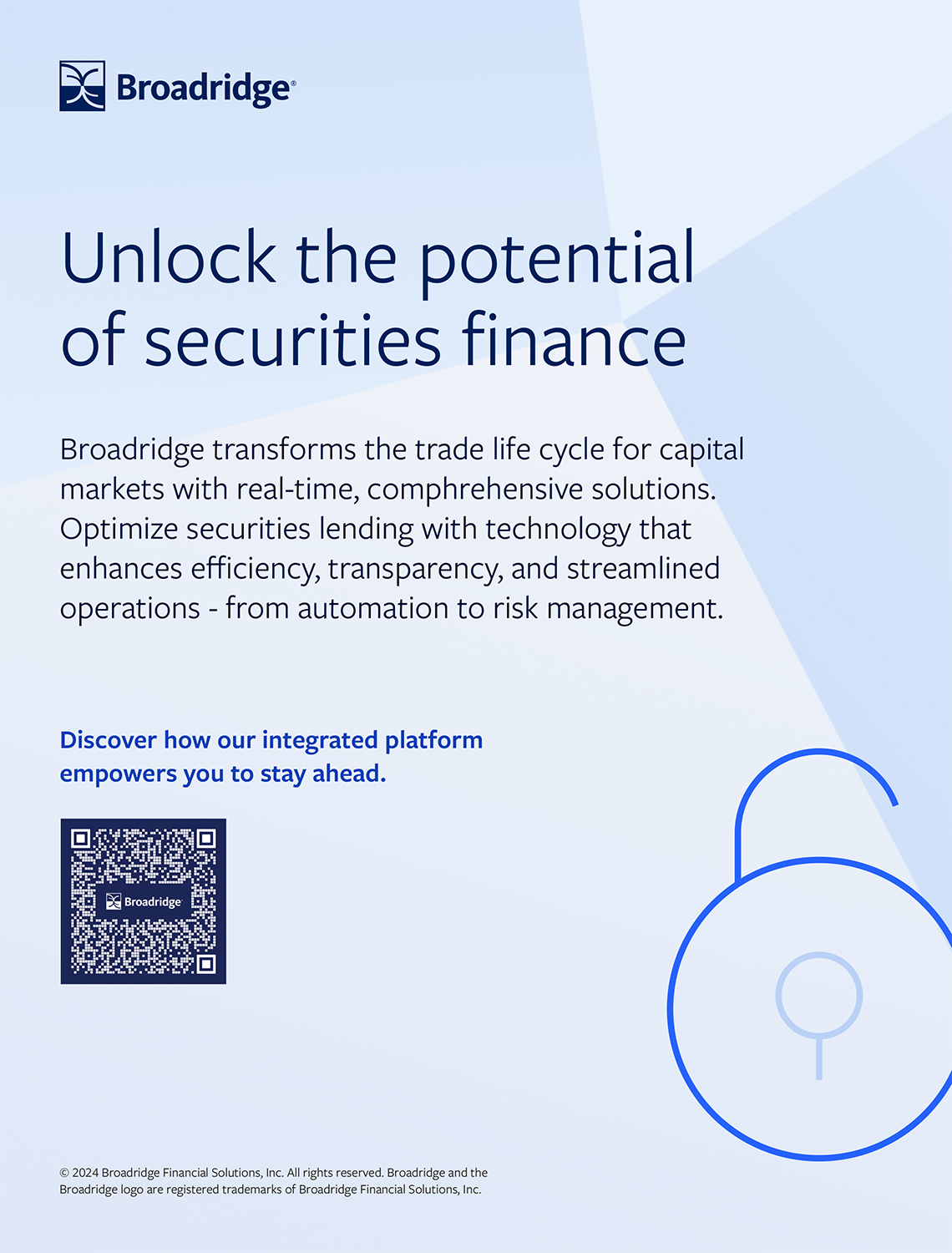IHS Markit opens HQLA valuation tool to securities finance client
14 January 2020 London
 Image: Shutterstock
Image: Shutterstock
IHS Markit has opened up access to its portfolio valuations and reference (PVR) services to its securities finance clients in order to boost utilisation of high-quality liquid assets (HQLA) and allow for more accurate asset valuations.
The financial services and data analytics provider says it has created a model to classify fixed income securities based on “a variety of fundamental and market-based characteristics”.
While the model inputs are proprietary and only available to PVR clients, IHS Markit’s securities finance clients have now been granted “complimentary access” to the output classifications.
The service also aims to provide more granular insight into the performance and market value of different forms of HQLA to assist in collateral valuation as part of securities lending transactions.
According to IHS Markit, the implications of HQLA classifications to the securities lending market are broad and include the marketability of lendable portfolios and the calculation of utilisation in performance reviews.
In a statement on the decision, IHS Markit says the move comes partly in response to the increased need for accurate classification of the three categories of HQLA in the wake of the implementation of Basel III’s liquidity coverage ratio (LCR).
The LCR came fully into force in 2015 and requires banks to ensure they are holding HQLA that is equal or greater than its net cash flow over a 30-day stress period.
HQLA is broadly broken down into the categories of level one for cash, central bank reserves and 0 percent risk-weighted government securities; level two (A) for non-financial corporate bonds and 20 percent risk-weighted government securities; and level two (B), which includes BBB rated government securities and common equity shares.
The financial services and data analytics provider says it has created a model to classify fixed income securities based on “a variety of fundamental and market-based characteristics”.
While the model inputs are proprietary and only available to PVR clients, IHS Markit’s securities finance clients have now been granted “complimentary access” to the output classifications.
The service also aims to provide more granular insight into the performance and market value of different forms of HQLA to assist in collateral valuation as part of securities lending transactions.
According to IHS Markit, the implications of HQLA classifications to the securities lending market are broad and include the marketability of lendable portfolios and the calculation of utilisation in performance reviews.
In a statement on the decision, IHS Markit says the move comes partly in response to the increased need for accurate classification of the three categories of HQLA in the wake of the implementation of Basel III’s liquidity coverage ratio (LCR).
The LCR came fully into force in 2015 and requires banks to ensure they are holding HQLA that is equal or greater than its net cash flow over a 30-day stress period.
HQLA is broadly broken down into the categories of level one for cash, central bank reserves and 0 percent risk-weighted government securities; level two (A) for non-financial corporate bonds and 20 percent risk-weighted government securities; and level two (B), which includes BBB rated government securities and common equity shares.
NO FEE, NO RISK
100% ON RETURNS If you invest in only one securities finance news source this year, make sure it is your free subscription to Securities Finance Times
100% ON RETURNS If you invest in only one securities finance news source this year, make sure it is your free subscription to Securities Finance Times



